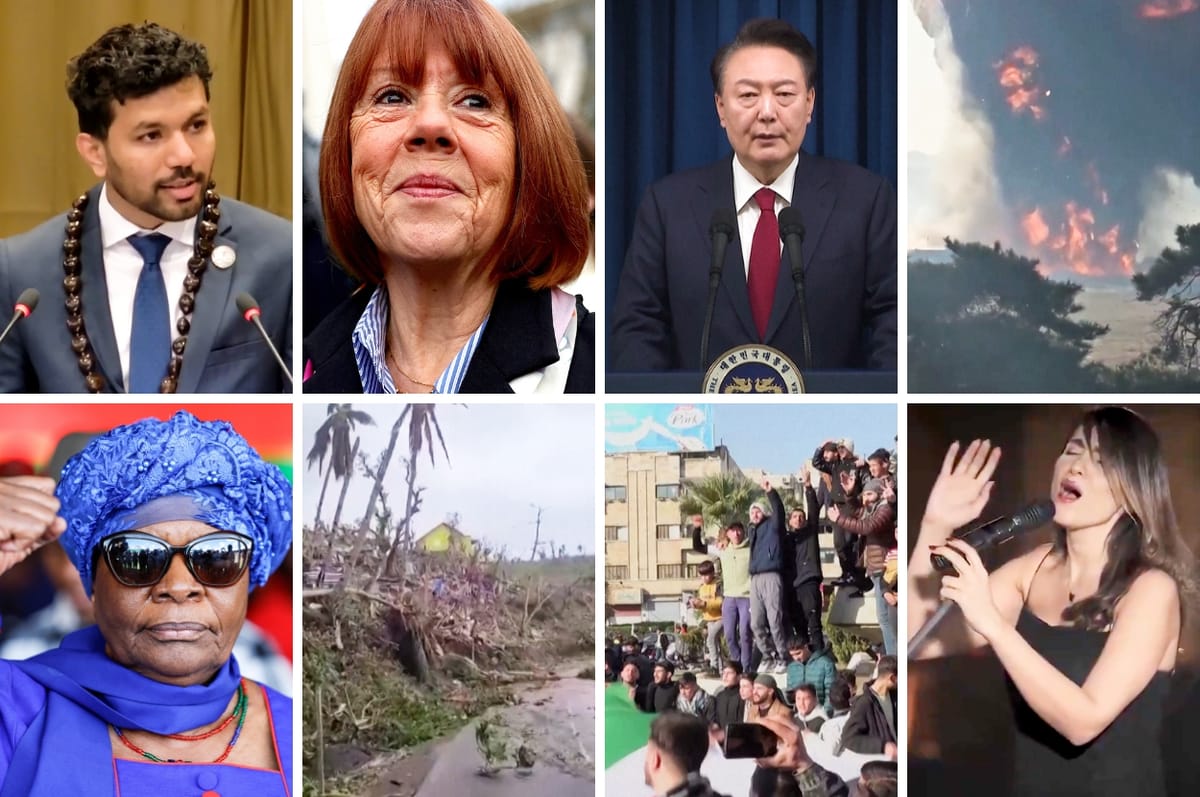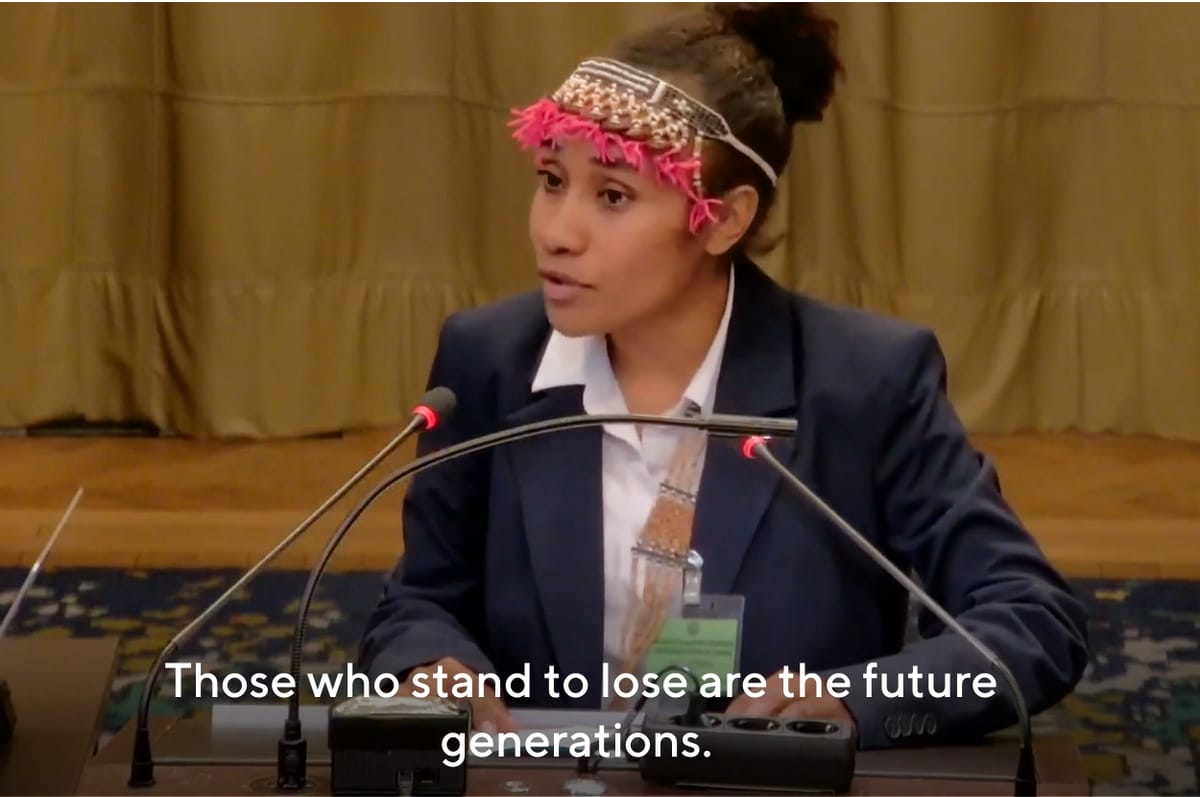Here’s What Happened Around The World In December 2024
Here’s What Happened Around The World In December 2024

1. Syria is free: Celebrations erupted after rebels liberated the country from the Assad regime
After rebels declared they had freed Syria and president Bashar al-Assad fled the country, Syrians around the country and all over the world are celebrating Syria’s liberation and the end of 13 years of civil war.
Videos on social media showed Syrians in different cities celebrating the downfall of al-Assad and his regime.
Crowds filled the streets of Damascus and other cities, chanting "God is great" and anti-Assad slogans.
On Nov. 27, rebel forces regrouped and launched a surprise offensive led by Islamist group Hayat Tahrir Al-Sham (HTS), advancing in government-held areas and seized most of Aleppo, the second-largest city in Syria, in just three days.
After taking over Aleppo, rebel forces advanced into Homs city on Dec. 7, then in the early hours of Dec. 8, they announced they had captured Damascus, Syria’s capital, and overthrown al-Assad.
2. Gisèle Pelicot’s ex-husband and the 50 men he invited to rape her were all found guilty
A French court has sentenced Dominique Pelicot to 20 years in prison for drugging his ex-wife Gisèle Pelicot and inviting dozens of strangers over to rape her while she was unconscious in a case that has shocked the world.
On Thursday, Dec. 19, the court sentenced Dominique to 20 years in prison for “aggravated rape” of his wife.
He was also charged of attempting to commit “aggravated rape” against one of the men’s wife and guilty of taking inappropriate photos of his daughter, as well as his daughters-in-law, according to the BBC.
The remaining 50 men were also given different sentences.
The court had found 46 of the 50 men guilty of rape, two of attempted rape and two of sexual assault.
3. South Korea’s parliament voted to impeach the president after he tried to impose martial law and failed
South Korean lawmakers have voted to impeach President Yoon Suk Yeol after he attempted to impose martial law, which sparked widespread protest across the country.
On Dec. 3, Yoon declared martial law, the first time in over 40 years, to eliminate what he called "anti-state forces."
However, within hours, parliament voted unanimously to lift the martial law order.
In the days that followed, tens of thousands of people protested across South Korea, demanding Yoon’s resignation.
On Dec. 7, lawmakers also attempted to pass an impeachment bill against him.
However, it failed after members of Yoon’s party decided to boycott the vote.
4. This young Fijian climate activist gave a powerful speech calling on the ICJ to ensure climate justice
On Friday, Dec. 13, the last day of the hearings on the International Court of Justice’s largest case in its history – linking climate change and human rights – the court heard a powerful speech from Vishal Prasad, a young climate activist from Fiji and the director of the Pacific Islands Students Fighting Climate Change, the group of students who brought the case to the court after a five-year campaign.
In his speech, Prasad urged the ICJ judges to act as wayfinders, like those in the Pacific, to direct the world towards a path that will protect homes, uphold human rights and preserve dignity.
5. Ukraine assassinated Russia’s chemical weapons chief with a bomb hidden in a scooter in Moscow
Igor Kirillov, the head of Russia’s Nuclear, Biological, and Chemical Defense Forces, has been assassinated in Moscow by Ukraine’s Security agency (SBU), which claimed responsibility for the killing.
Kirillov was killed by a bomb that was concealed in an electric scooter and set off remotely as he walked out of a building early on Tuesday Dec. 17.
The SBU called Kirillov a “war criminal” and said he was a “legitimate target” because he ordered the use of banned chemical weapons against Ukrainian forces.
6. Iran will pause a harsher dress code after it was criticized for jailing this singer for not wearing her hijab
Iran has paused on enforcing a stricter hijab law after facing strong criticism from human rights groups and the public.
The law, which was set to take effect on Dec. 13, would punish anyone aged 12 and above for refusing to wear a hijab and those "promoting or advertising nudity" or "immodest dressing”, according to the UN.
While women in Iran already face punishments for not wearing a hijab, the new law would have introduced heavy fines and prison sentences for women “who do not cover their hair, forearms or lower legs”.
More than 300 Iranian activists, writers and journalists criticized the law as "illegitimate and unenforceable" and asked President Pezeshkian to fulfill the promises he made during his campaign, according to the BBC.
In addition, under the new law, Iranian authorities can charge women and girls who share videos without a hijab or protest the hijab rules with "corruption on earth", a crime that can carry the death penalty.
On Dec. 14, following the backlash, Iran announced it would pause the implementation of the new law, with president Massoud Pezeshkian calling it "ambiguous" and "in need of reform."
7. French island Mayotte has been completely devastated after it was hit by the worst cyclone in 90 years
The worst storm in nearly a century, Cyclone Chido, hit Mayotte, a French overseas territory, killing at least 22 people and injuring more than 1,400 others.
Chido was so strong that it was equivalent to a Category 4 hurricane at the time of landfall in Mayotte, making it the second strongest type of storm on the Saffir-Simpson scale, a classification system used to categorize tropical cyclones.
The cyclone made landfall on Dec. 14, with wind speeds exceeding 220 km/h, resulting in catastrophic damage to infrastructure and housing, particularly in densely populated areas where many residents live in makeshift metal shacks.
Reports said the aftermath of the cyclone looked apocalyptic.
The cyclone has also hit other countries including Madagascar, the Comoros Islands and Mozambique, where it killed at least 34 people and injured 319 others, according to the UN.
8. Namibia elected its first woman president
Namibia has elected its first woman president.
77-year-old Netumbo Nandi-Ndaitwah is a prominent figure in Namibian politics since the country gained independence from apartheid South Africa in 1990.
She joined the ruling South West Africa People’s Organisation (SWAPO) party at a young age and played a significant role in the independence movement during the 1970s, according to Al Jazeera.
Despite predictions that there would be a runoff, Nandi-Ndaitwah won the presidential election on Tuesday, Dec. 3, with approximately 57% of the votes.
In her victory speech, Nandi-Ndaitwah said that “Namibia has voted for peace and stability.”
She took over the presidency on Dec. 9.
10. A South Korean plane crashed while landing and almost all 181 passengers are dead
A passenger plane belonging to Jeju Airlines crashed in South Korea’s Muan International Airport on Sunday Dec. 29, killing almost all 181 people on board, with only two survivors.
Flight 7C 2216, which was carrying 175 passengers and six crew members, was flying from Bangkok, Thailand, to Muan county, in southwest South Korea.
The airplane crashed into the outer wall of the airport’s runway as it was trying to land.
This was the deadliest airplane crash in South Korea since 1997.
You Might Also Be Interested In









